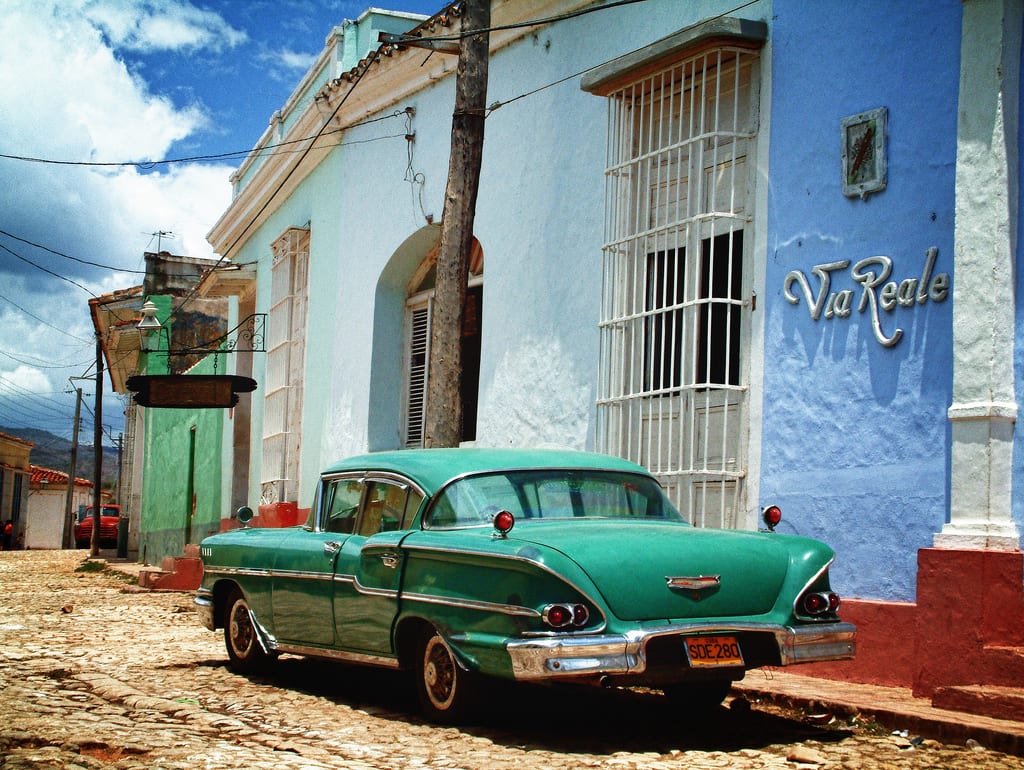
Cuba, the island that can also be read.
Although the most famous island in the Caribbean begins to slowly open up to the world, there are many years in which the Cuban population has been repressed by a communist regime that has pushed them to tell stories looking at the sea, from a Malecón full of great stories. These best books of Cuban literature speak of palm trees and tragedies, of sorrows and smiles but, above all, of hope for a better world.
Best books of Cuban literature
Cecilia Valdés or the Loma del Ángel, by Cirilo Villaverde
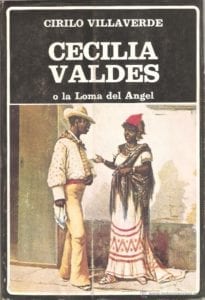
Published in two volumes in 1839 and 1879 that were reunited in a final edition in 1882, Villaverde's work is considered as the first Cuban novel and it's a story set in Cuba in 1830, addressing the reality of free mulattoes and slaves in the hands of Spanish families. The novel, of that romantic character so typical of the XNUMXth century, tells the love story between the Creole Cecilia and Leonardo, who do not know that they are half-brothers and children of the same father, the millionaire Cándido de Gamboa. The novel became the subject of a Cuban zarzuela adapted years ago composed by Gonzalo Roig.
Would you like to read Cecilia Valdés or the Loma del Ángel?
The Golden Age and other stories, by José Martí
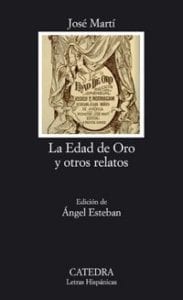
Creator of Cuban Revolutionary Party and the most representative figure of the Cuban independenceJosé Martí was also a modernist poet and novelist whose works, sometimes overshadowed by his political acts, were rediscovered as a whole reinvention of XNUMXth century Spanish letters. The Golden Age is a good example, a compendium of short stories about fantasy, heroism, and justice written for "the children of America" but highly recommended for people of all ages.
The kingdom of this world, by Alejo Carpentier
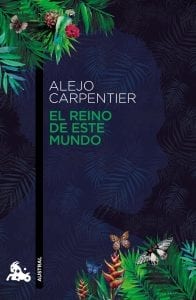
During the years that Carpentier spent in Europe, the surrealism became one of his great influences. A current that he carried with him during his return to Cuba and his immersion in a world of voodoo rituals and ceremonies woven between his island and nearby Haiti that would result in The kingdom of this world, published in 1949. Ambassador of the concept of «lo real marvelous»So typical of the Haitian Revolution, the novel follows in the footsteps of the slave Ti Noél, a representation of African magical beliefs, in a troubled time for a black population of Haiti totally subjugated by European tyranny. One of the most representative works of Latin American literature of all time.
Three sad tigers, by Guillermo Cabrera Infante
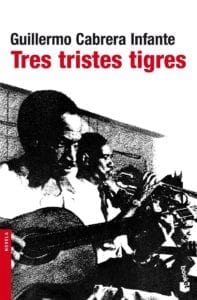
Published in 1965, and later in 1967 in a corrected edition, Three sad tigers, which arose from the famous Cuban children's tongue twister, tells of three friends who mock their state of poverty through a night out in Havana. Full of Cuban colloquialisms that incite "to read the novel aloud" according to an explanatory note at the beginning of the work written by Infante himself, the novel it was banned in Cuba by Fidel Castro Although it was one of the key works during the so-called "Latin American boom" of the 60s.
Paradiso, by José Lezama Lima
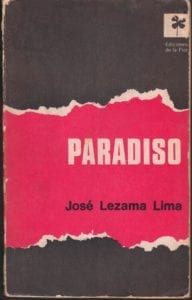
Although it was published in 1966, Lima's first novel it already saw the light in 1949 through the publication of its first two chapters. A baroque monument that defies all the laws of traditional literature to tell the story of the poet José Cemí from his birth to his early college years, configuring a learning novel with a complex structure that challenges the reader's intellect. The play, praised from the first moment of publication by Octavio Paz or Julio Cortázar, also became a reason for rejection by the Revolution given its homoerotic dyes.
You still haven't read XNUMX. Paradiso?
Before nightfall, by Reinaldo Arenas

Before committing suicide on December 7, 1990 due to an AIDS diagnosis that ended up consuming his last days in New York, Reinaldo Arenas left this book as an inheritance. A testimony of the hard life in Cuba for a homosexual writer and dissident opposed to a Castro regime that did not cease to persecute him until his flight from the island in 1980. Captivating and chilling, the work was adapted to the cinema in 2001 with Javier Bardem as Arenas, for which he was nominated for an Oscar for Best Actor. Without a doubt, one of the best books in Cuban literature.
Lee Before Night Falls by Reinaldo Arenas.
Silences, by Karla Suárez
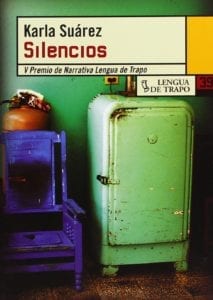
Published in 1999, Silences it became a whole best sellers thanks to a premise that allowed the world to identify with the situation in Cuba, specifically through the eyes of a girl who, during her transition to maturity, understands all the relationships of the people with whom she lives under the influence of the regime Cuban.
Everybody Goes, by Wendy Guerra
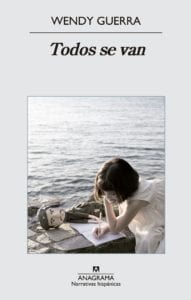
The desire to leave an island in which the government dictates the destiny of its inhabitants has always been one of the most frequent themes in Cuban literature, except that few have come to address it as decisively as Everyone leaves Wendy Guerra. Narrated as a diary, the work tells Snow Guerra's life from 8 to 20 years old, a period in which many of his acquaintances flee, all of them dreamers of a world that will not find them in Cuba. The novel won the First Prize for Novel Bruguera in March 2006 and was adapted to the cinema by Sergio Cabrera in 2014
The man who loved dogs, by Leonardo Padura
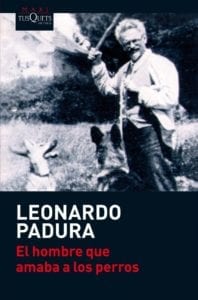
Master of dirty realism, Leonardo Padura is possibly one of the most influential Cuban authors in contemporary literature whose greatest work is undoubtedly The man who loved the dogs. Published in 2009, the novel tells the memories of Iván, a veterinarian, about an encounter he had in 1977 with a man accompanied by two greyhounds on a Cuban beach almost thirty years ago. It was at that moment that that new acquaintance revealed many details about the relationship between León Trotsky and his murderer, Ramón Mercader, until their confluence in Mexico. A portrait that Padura uses to project his vision of Cuba in his later years.
What are, in your opinion, the best books of Cuban literature?
Of those mentioned, I read The Golden Age, Cecilia Valdés, Tres Tristes Tigres, The Man Who Loved Dogs and Before Night Falls, for my part I highly recommend a recently published novel that deals with the issue of emigration, it is called A KIDNEY FOR YOU GIRL (author Lourdes María Monert) pleasant, deep and moving,
It is very subjective. There is no betseller in Cuba to measure popularity or parameters or critics for such an ignoble task.
The list only contains some of the best books, I should say novelists. Neither Wendi, nor Padura nor Karla are great. The stars are missing, although there are Martí, Cabrera Infante, Lezama Lima and Reinaldo Arenas. Zoe Valdés, Severo Sarduy, Heberto Padilla, Virgilio Piñera, Lidia Cabrera, Lino Novás Calvo, Daína Chaviano, Benítez Rojo, and many others are not mentioned. Neither the new ones from exile are mentioned, nor the new ones from the island. As for the best books, that is another topic. Thanks
Jorge Gallardo? Do you dare to mention Zoe Valdés among the classics of Cuban literature? Dania Chaviano? Fuck no friend. And who in his right mind would put Reinaldo Arenas? ... ha ha ha !!